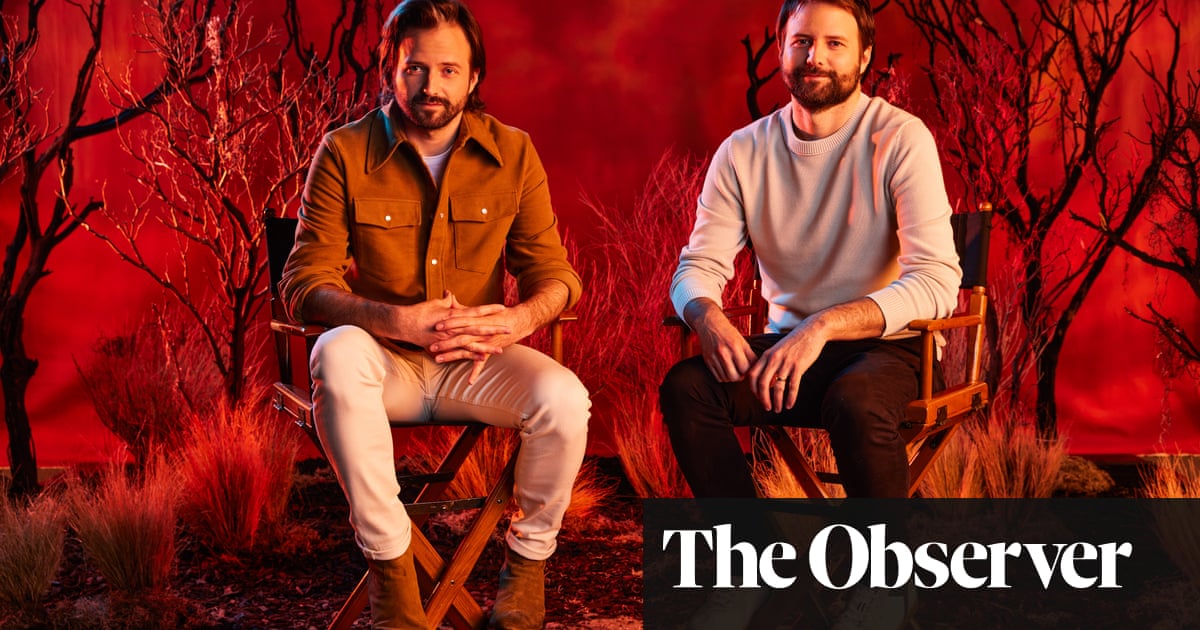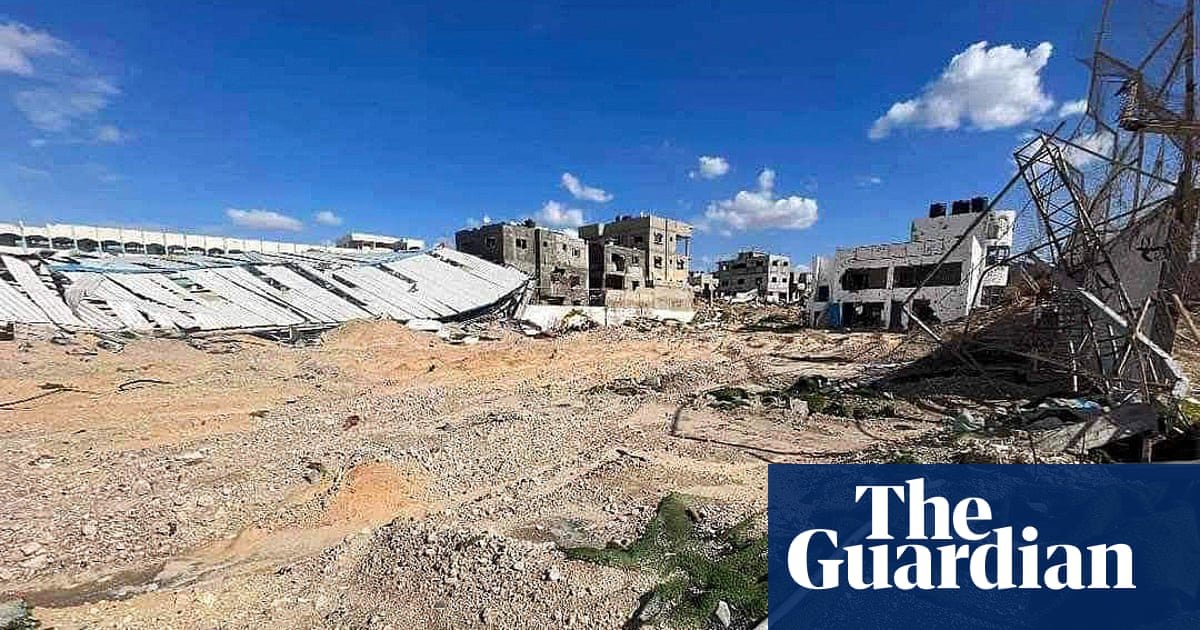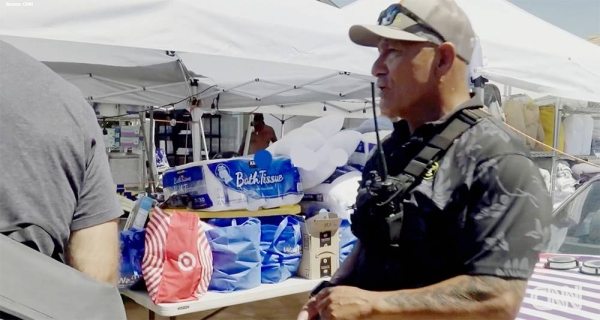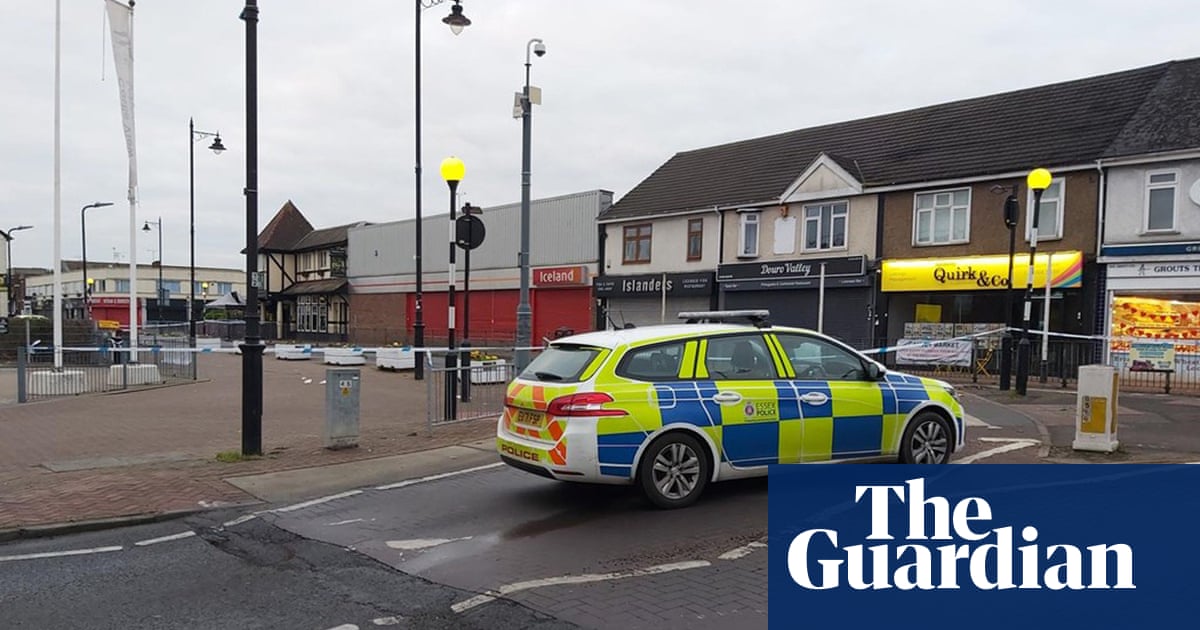
urna Boy might be Africa’s biggest music star, but when he speaks, it’s hard to place exactly where he’s from. Ask him about the US, and a mid-Atlantic lilt comes into play; quiz him on his time in the UK, and he sounds more like Skepta than King Sunny Ade. But when he talks about his beloved Nigeria, the rich tones of the west African country are exposed, and it’s this that has made him arguably the continent’s most sought-after musical export. “I don’t really speak one language and I don’t only talk one way. That shows in the music,” he says, referring to the fact that he sings in a mix of Yoruba, Igbo and pidgin English. Is that to make a political point? “It’s not a statement – it’s just me being who I am.” And who is that exactly? The music site Pitchfork described him as an “everyman, local griot, global ambassador, party-starter”, but before we can find out, we have to get hold of him.
Getting in touch with Burna Boy isn’t easy. After a couple of false starts, his sister, who has been tasked with ensuring the interview takes place, answers the phone. As the handset is passed around, I get a tour of the living room in his Lagos home. It looks a bit like the Korova Milkbar from A Clockwork Orange, all geometric shapes and bursts of dazzling white. Then, after a few moments, the phone is put in front of Burna Boy, who says hello before picking up a PS4 joypad and carrying on a game of Grand Theft Auto. “I love the helicopter, you know,” he says, as I struggle to wrestle his attention from the on-screen destruction. It’s hardly an encouraging start. I’m told he hates it when journalists expect long, detailed answers if he feels a short, curt response is all that’s needed. “If you ask a question, he’s gonna answer it honestly, but it’s not gonna be a very long answer,” says a member of his team before we get started. In the end, however, it turns out he has quite a lot to say.
The chaos caused by Covid-19 means that Burna Boy is conducting promotion for his forthcoming album, Twice As Tall, from his home. In a parallel world, he would be continuing the gruelling tour schedule of the last few years, which has seen him bounce between Europe, the US and Africa. That helped make his last record, African Giant, a breakthrough in the US. He did it without compromise, and with a sound of his own he calls Afro-fusion – a mix of Afrobeats and other genres, including dancehall and hip-hop. Despite the punch and power of his beats, he’s not bound by the parameters of rap – musically he’s got just as much in common with Fela Kuti or Babatunde Olatunji as Drake or Migos.
At the start of last year he was outraged that his name was too small on the poster for Coachella (“I am an AFRICAN GIANT and will not be reduced to whatever that tiny writing means,” he wrote on Instagram). By the end, Barack Obama had included his track Anybody on his best songs of 2019 playlist, Beyoncé had called on him to provide a track for her smash-hit Lion King soundtrack, and African Giant had been nominated at the Grammys for best world music album.
Burna Boy goes out with British R&B star Stefflon Don – the pair met at a gig in Ghana in 2018 – and he has long been a go-to guest for British acts who want to bring some global heft to their albums. When asked how he chooses collaborators, Burna goes mystical: “I don’t pick the people I work with, my spirit does,” he says. Stormzy and Dave have both collaborated with him (Dave’s track Location was one of last summer’s mainstays), while acts as varied as Lily Allen, Ed Sheeran, Jorja Smith and J Hus have also asked for the Burna treatment. He usually adds a softer, melodic chorus in his rap guest spots and brings Afro-fusion credibility to his pop collaborators.
Burna Boy believes there’s something deeper at work when it comes to his popularity in the UK. “Most of the people from the UK, if not all the black people from the UK, and the people of colour – they all know where they’re from,” he says. “They know exactly where their roots are.” This, he says, makes it easier for people to tune into his wavelength. It took longer for his music to find an audience in the US; this, he says, is a consequence of African Americans not having the same close connection with Africa. “Unfortunately, the brothers in the US have been stripped of their whole knowledge of self,” he says. “So it’s a bit harder for them, you know?” When he collaborated with the US rappers YG and Future, he said he was “bringing my brothers home”.
There’s a whole generation of African – and often Nigerian – artists who, along with Burna Boy, have taken the Afrobeats sound global. Davido, Wizkid, Olamide, Naira Marley, Tiwa Savage and Zlatan – all have had success in Europe or the US, but Burna Boy is a slightly different proposition. His aesthetic borrows from hip-hop’s sartorial playbook: thick gold chains adorn his neck, he has a vast collection of rings, and when he smiles he often reveals gold- and jewel-encrusted teeth grills. Tattoos cover most of his upper body, arms and hands. But even here, Africa (and specifically Nigeria) is everywhere. His tattoos include a brick wall with the names of family members written on it, and there’s a portrait of Fela Kuti on his left forearm. The title of his first album, Leaving An Impact For Eternity, has also been inked, and he has the phrase “Omo Naija” – child of Nigeria – above the country’s coat of arms on his shoulder.
When in June this year he won a BET award for best international male, he used the moment to make a point about Africa, colonialism and Black Lives Matter. “I’d like to use this opportunity to say that some time around 1835, there was a mission to turn Africa into a dominated nation,” he said, after being congratulated by Naomi Campbell via video link. “Now is the time to overturn that, and go back to the royalty that we were, because, in order for black lives to matter, Africa must matter.” The year before, he managed to miss picking up his award, but his mum – who is also his manager – stepped in, telling the audience that he’d want to say, “Every black person should please remember that you were Africans before you became anything else.” A sample of her speech appears on African Giant.
Why did he make that point specifically? “I feel like the only way we can move forward is if we all know that this is our home and we make sure our home is a place that is respected,” he says. “Once everybody respects your home, then they have no choice but to respect you.” He says the problem is worse for black people in America, because “you can’t demand respect in the place where they don’t believe that you belong”. When I ask if he supports Black Lives Matter he says: “I’m more of an NFAC kind of guy,” referring to the Not Fucking Around Coalition, the armed African-American group made up of ex-military personnel that has been compared to the Black Panthers. While most stars might dance around a subject like this, and offer a general comment about anti-racism, Burna is happy to jump in with both feet and back a group whose leader has advocated for the state of Texas becoming an independent country for African-Americans. This isn’t safe ground for pop stars, but Burna clearly doesn’t see himself as just that – his goals are much bigger. He’s said previously that his aim is “the eventual unity of Africa”, and to understand his philosophy you need to go back to his childhood.
***
Born Damini Ebunoluwa Ogulu on 2 July 1991 in the oil city of Port Harcourt in south-east Nigeria, Burna Boy says he knew he was going to be a star from the age of two. As a toddler, he would dance and sing when his parents took him to restaurants. When he was a little older, he fell in love with US rappers such as Naughty By Nature, DMX, Big Pun and Busta Rhymes via his uncle, while his father introduced him to the dancehall of Buju Banton. He describes his upbringing as being “not too rich, not poor” but it’s fair to say it was comfortable. His father worked in construction, while his mother was a translator for the West African Chambers of Commerce; she is fluent in French, Italian and German. Meanwhile, his maternal grandfather managed Fela Kuti’s career. What was a typical weekend like in the Burna Boy household when he was growing up? “My grandfather playing Afrobeat, usually Fela, my dad working on the barbecue, and my mum just causing a scene,” he says. “And me trying to find a corner to smoke some weed.”
As a teenager he was rebellious, and not particularly gifted at school. In the early 2010s he came to London to continue his education, but when I ask him whether it was university or college, he won’t engage: “All of that,” he says, dismissively. In the end, he never attended a class, and instead spent his time with friends in Brixton. Like his hero Fela Kuti, he came to the UK for an academic education and got one in music instead, taking back some of the grime and slang he’d heard in south London to Lagos. It was then that he began to make his own music, which at that point was closer to the US R&B he used to watch on MTV. “Only later, when I started finding myself and understanding who I am, did I start appreciating African music and everything my grandad had been trying to put into my hands since I was a kid,” he says.
He clearly shares his grandfather’s affection for Fela, who is an influence not just musically but also for his philosophy. He’s shot videos at Fela’s New Afrika Shrine, the Lagos venue run by Fela’s son Femi Kuti. Why is there such a pull? “Because he made the music he wanted to,” he explains, adding that Fela’s defiance of Nigeria’s military dictatorship makes him his “superhero – even though I guarantee you at that time people didn’t understand, and they were probably dissing him because they didn’t get it. I’m from a very hypocritical society, where the truth is not applauded.”
He tackles some of those contradictions in his music. On African Giant, the song Dangote references Nigerian industrialist Aliko Dangote, one of the world’s richest men whose name can be seen plastered on the side of trucks that are a ubiquitous presence on the country’s roads. On Twice As Tall’s lead single, Wonderful, he says he hustles “like Adebayo Ogunlesi”, the Nigerian investment banker who is most famous for buying Gatwick and London City airports. He’s not really critical of these figures; they’re shorthand for wealth and excess in the same way that Donald Trump was a go-to reference for rappers in the 90s. He’s certainly not blaming them for the huge inequality in his home country. “The only people who I focus on, and who have blame for whatever is happening now, is us – the youth,” he says. “Because we take what we get sitting down. Freedom is not something that is given.” Can his self-styled “protest music” cut through the hypocrisy? “We’re not ready yet,” he says of his homeland. “That’s how our minds have been suppressed, this is a deep-rooted issue.”
In past interviews, Burna Boy regularly raises the idea of pan-Africanism: that unity on the continent is the way for it to thrive. The movement grew up at the end of the colonial era, and saw a collective push to oppose apartheid and resist imperialism. It’s hardly a new concept, but it’s rare to hear it discussed by a pop star, so I’m intrigued to find out where he pulls his influences from: is it Fela, Patrice Lumumba, the elected leader of the Democratic Republic of the Congo who was murdered in 1961 with help from the Belgian government, or his parents?
There’s a pause, and then he answers. “Muammar Gaddafi,” he says, leaning into the camera. Wait, what? Seriously? What about the global exportation of terrorism, the four-decade brutal reign in which dissent was squashed, often violently. “How do you know that?” Burna shoots back. “Because that was the agenda that was pushed, and that was the news that was pushed in your face?”
Well, he did ultimately admit responsibility for the Lockerbie bombing – and it’s a fact that he suppressed his opponents, and killed foreign-based dissidents. It’s a tough position to argue, I say. “It’s not a tough one, it’s a realistic one,” Burna says, defiantly. His logic goes that Gaddafi should be applauded for his ambitions to start the African Monetary Fund in order to counter the power of the Eurocentric IMF, and for his socialist policies in Libya. However flawed, his ideas were truly pan-African, he argues.
This is a very different Burna Boy from the taciturn, reluctant interviewee I’d been warned about. As he talks about pan-Africanism, he leans closer and closer to the phone, turning his head to hear the questions. The joypad is long gone, the helicopter has probably crashed into a building. “I’m not trying to make justifications for anything, I’m just trying to tell you the reality,” he says. “And the reality is that Africa has the most visibly corrupt leaders. The reason that Africa is the way it is today is because of the leaders and the greed. Who elected those leaders? Was it not the citizens? Is that not democracy?”
So what’s the alternative? He’s not sure, but he’s got a question for me. “Have you seen Libya today?” he asks. “The evidence [that the situation is no better] is there for the world to see. The only thing is, it does not pay the powers that be to push the truth in your face – it pays to push their agendas.”
At this point, the PR interjects to move the conversation on.
We return to Burna’s youth when, as a teen, he would steal his dad’s car, a Mitsubishi Galant, and drive around Port Harcourt with his friends. A decade later, he has moved up in the world. He sings about his G-Wagon (a Mercedes-Benz G-Class) and his Bentley on the song Ye. I’m curious to know how he negotiates Lagos’s notorious traffic in a Bentley, but it turns out he doesn’t have to: “I drive a Ferrari 458 in Lagos, so the Bentley is not a problem,” he says, going into a detailed run-through of his fleet of cars and their specific uses. “So certain places I need to go with the G-Wagon, because the roads are mad. Then on Sundays, if I want to go to the boat, it’s the Rolls-Royce. On a Friday, it’s going to be the Ferrari because I’ll be going to someone’s house. Then if it’s like a business thing, it’s the Range Rover. You know, there are different times for different cars.”
Different cars for different situations: it could be a metaphor for how Burna Boy has got to where he is today. Why choose one genre when you can create your own and make the world of music dance to your tune?
• Twice As Tall is out on 14 August.












